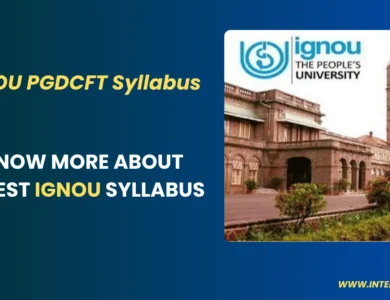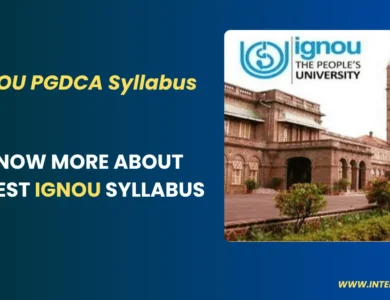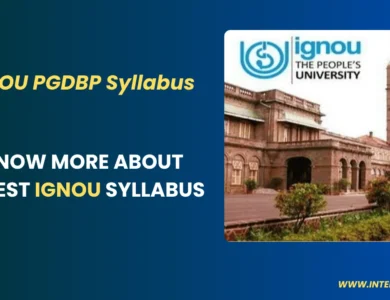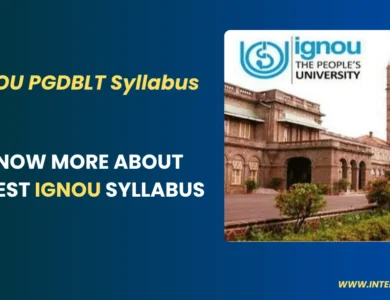IGNOU BA – BAG Syllabus 2025
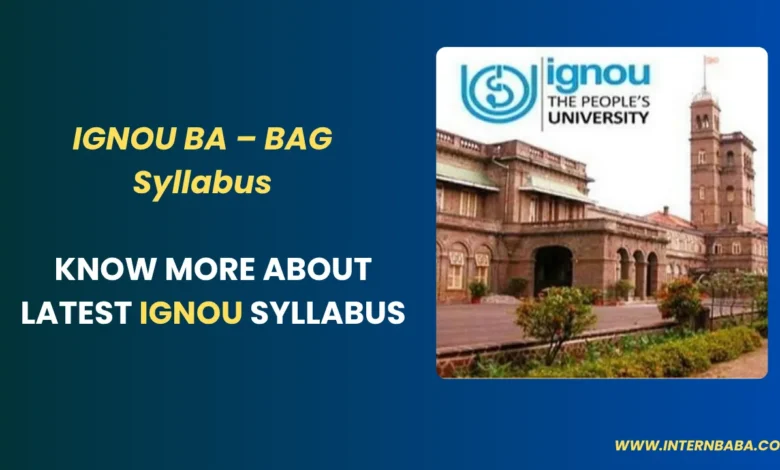
If you’re considering pursuing a Bachelor of Arts (BA) degree from Indira Gandhi National Open University (IGNOU) in 2025, you’re making a smart, flexible, and cost-effective choice. IGNOU’s BA program is designed to accommodate learners from all walks of life—whether you’re a recent high school graduate, a working professional, or someone returning to education after a break. With the Choice Based Credit System (CBCS), IGNOU allows you to customize your academic journey based on your interests, career goals, and availability. But with so many course options and credit requirements, the syllabus can seem overwhelming at first.
That’s why we’ve created this easy-to-understand, comprehensive guide for the IGNOU BA syllabus 2025. You’ll find everything from subject breakdowns and year-wise course structures to credit distribution and FAQs—so you can plan your studies with confidence and clarity.
Overview of IGNOU BA Program 2025
The BA program at IGNOU is structured under the CBCS format. This approach lets students choose their subjects across multiple disciplines such as Hindi, English, Political Science, Psychology, Economics, and many others. The entire program is designed to be completed in a minimum of three years and a maximum of six years, offering learners the flexibility to study at their own pace.
| Program Components | Details |
|---|---|
| Minimum Duration | 3 Years |
| Maximum Duration | 6 Years |
| Total Credits Required | 132 Credits |
| Evaluation Method | Assignments + Term-End Examinations |
| Medium of Instruction | English & Hindi |
Course Structure: What You’ll Study
The IGNOU BA program comprises five key components:
- Core Courses (CC)
- Discipline Specific Electives (DSE)
- Skill Enhancement Courses (SEC)
- Ability Enhancement Compulsory Courses (AECC)
- Generic Electives (GE)
Each of these plays a specific role in shaping your academic journey.
1. Core Courses (CC)
These are compulsory papers in two disciplines of your choice. You will take 4 core courses from each discipline, making a total of 8 core papers.
| Discipline | Core Courses |
| Hindi, English, Political Science, etc. | 4 per discipline |
2. Discipline Specific Electives (DSE)
These are advanced courses in your selected disciplines, usually taken in the final year.
| Year | No. of DSEs |
| 3rd Year | 2 per discipline (Total 4) |
3. Skill Enhancement Courses (SEC)
These courses are practical and job-oriented, designed to build skills like digital literacy, writing, and communication.
| Semester | SEC Paper |
| 3rd Semester | One SEC Paper |
| 4th Semester | One SEC Paper |
4. Ability Enhancement Compulsory Courses (AECC)
These courses focus on essential life skills such as environmental awareness and communication.
| Semester | AECC Paper |
| 1st Semester | Environmental Studies |
| 2nd Semester | English Communication / Hindi Communication |
5. Generic Electives (GE)
GE courses are taken from disciplines other than your main subject areas to enhance interdisciplinary knowledge.
| Year | GE Papers |
| 1st Year | One GE Paper |
| 2nd Year | One GE Paper |
Year-Wise Credit Distribution
Each year, you are expected to complete a set number of credits. The distribution is even across three years:
| Academic Year | Credits |
| 1st Year | 44 Credits |
| 2nd Year | 44 Credits |
| 3rd Year | 44 Credits |
This adds up to 132 credits by the end of the program.
Popular Disciplines and Their Courses
Here is an overview of some of the popular disciplines and their course options:
English
- Core Courses: Indian Writing in English, British Literature, Literary Forms
- DSE: Postcolonial Literature, Literary Criticism, Women’s Writing
Hindi
- Core Courses: Hindi Sahitya ka Itihas, Katha Sahitya, Kavya Shastra
- DSE: Anuvad Sidhant, Nibandh Lekhan, Hindi Natak
Political Science
- Core Courses: Indian Government and Politics, Comparative Government
- DSE: International Relations, Public Administration
History
- Core Courses: History of India (Ancient to Modern), World History
- DSE: Indian National Movement, History of Europe, Modern World
Psychology
- Core Courses: Introduction to Psychology, Developmental Psychology
- DSE: Counseling Psychology, Psychological Research
Sociology
- Core Courses: Indian Society, Sociological Thinkers
- DSE: Urban Sociology, Gender and Society
Economics
- Core Courses: Microeconomics, Macroeconomics
- DSE: Indian Economy, Development Economics
Evaluation & Examination Pattern
IGNOU evaluates students through a combination of assignments and term-end exams.
- Assignments: 30% weightage; must be submitted before the term-end exam
- Term-End Exam: 70% weightage; held twice a year in June and December
Passing both components is essential to earn credit for a course.
Additional Benefits of the IGNOU BA Program
- Flexibility: Choose your subjects and schedule exams at your convenience.
- Affordability: Low course fees make it accessible to all.
- Recognition: UGC-approved and accepted for jobs and further education.
- Support Services: Access to online learning, printed materials, and personal contact programs.
Frequently Asked Questions (FAQs)
Q1. Can I change my discipline after enrollment?
No, once you have selected a discipline, it cannot be changed mid-program.
Q2. Are all BA courses offered in both English and Hindi?
Most courses are available in both languages, but some electives may only be offered in one. Always check the latest prospectus.
Q3. What is the age limit for joining the IGNOU BA program?
There is no age restriction. Anyone who meets the eligibility criteria can apply.
Q4. Can I pursue the IGNOU BA while working full-time?
Yes, the program is ideal for working professionals due to its flexible study pattern.
Q5. How do I select GE and SEC subjects?
You can choose these at the time of course registration or re-registration. The options will be listed in the academic schedule provided by IGNOU.
The IGNOU BA syllabus for 2025 offers a perfect balance of flexibility, academic rigor, and real-world relevance. It allows you to tailor your degree to your personal interests and professional goals. With its structured format and wide array of disciplines, this program is an excellent option for anyone looking to earn a quality undergraduate degree on their own terms. For the most accurate and updated information, always refer to the official IGNOU prospectus and academic calendar.


